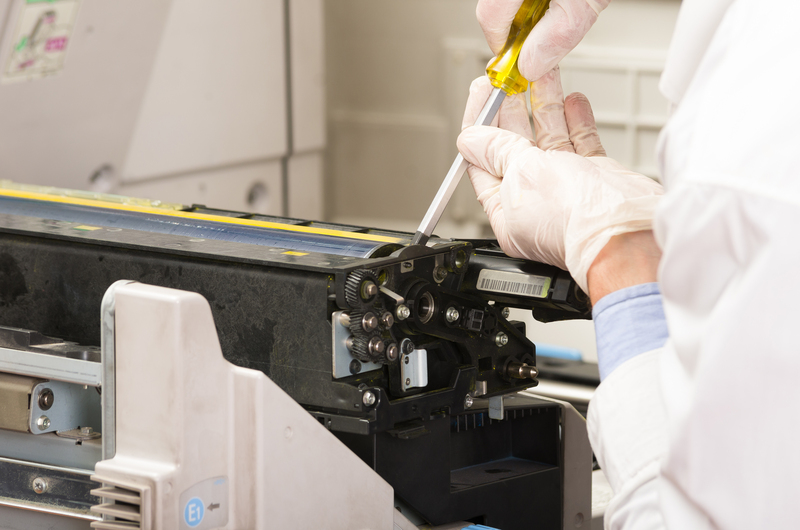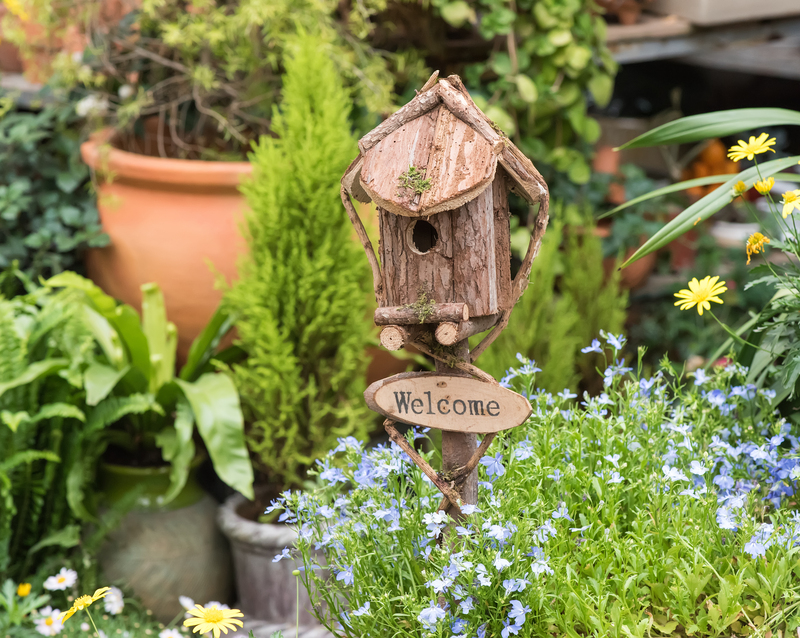5 Easy Sustainable Swaps for Your Everyday Routine
Posted on 07/09/2024
In today's fast-paced world, it's becoming more and more important to implement sustainable practices in our daily lives. With growing concerns about climate change and the environment, making small but impactful changes to our routines can go a long way in protecting our planet. And the best part? These changes are not only good for the Earth, but they also benefit us personally by saving money and promoting a healthier lifestyle. So if you're looking to make some easy sustainable swaps in your everyday routine, read on for some tips and ideas.
1. Ditch Single-Use Plastics
Plastic waste is a major contributor to pollution, especially in our oceans. The convenience of single-use plastic items like water bottles, straws, and utensils has made them ubiquitous in our daily lives. However, these items take hundreds of years to decompose and often end up in landfills or polluting our natural surroundings.
Instead of using disposable plastic products, consider investing in reusable alternatives such as stainless steel or glass water bottles, metal or bamboo straws, and wooden utensils. You can easily find these items at most stores, or even better, support small businesses that are dedicated to eco-friendly products. By making this simple swap, you'll significantly reduce your carbon footprint and reduce the amount of plastic waste that ends up in our landfills and oceans.

2. Choose Sustainable Household Cleaners
Many commercial cleaners contain harsh chemicals that can be harmful to both our health and the environment. Switching to eco-friendly alternatives not only reduces the use of toxic chemicals but also decreases pollution from their production and disposal.
Look for cleaning products with natural ingredients such as vinegar, lemon juice, baking soda, and essential oils. These items are inexpensive and just as effective as their chemical-laden counterparts. You can also make your own DIY cleaners using everyday household items. Not only will you be reducing your environmental impact, but your home will also be free from harmful chemicals.
3. Embrace Meatless Mondays
The meat industry is a major contributor to greenhouse gas emissions and deforestation. You don't have to go completely vegetarian or vegan, but incorporating more plant-based meals into your diet can make a significant impact. Consider dedicating one day a week to a meatless meal to reduce your carbon footprint. And with the growing popularity of plant-based alternatives, it's easier than ever to find delicious and satisfying options for your meals.
4. Shop Secondhand
Fast fashion has become the norm in today's society, with new clothing trends constantly being churned out and old clothes discarded without a second thought. This cycle not only leads to excessive waste but also contributes to the exploitation of labor in the fashion industry.
Instead of buying new clothes every season, consider shopping secondhand at thrift stores or online consignment shops. Not only will you be reducing waste, but you'll also be saving money and giving new life to pre-loved items.
5. Grow Your Own Food
One of the best ways to reduce your carbon footprint is by growing your own food. Whether you have a large garden or just a small balcony, there are plenty of options for growing your own fruits, vegetables, and herbs. By doing so, you're not only reducing your reliance on store-bought produce that often travels long distances, but you're also getting fresh, organic food without any harmful pesticides or chemicals.
Pros and Cons:
As with any lifestyle change, there are both pros and cons to implementing sustainable swaps in your everyday routine. Let's take a look at some of them.
Pros:
- Reduced environmental impact
- Cost savings
- Healthier lifestyle
- Promotes self-sufficiency
- Creates awareness and inspires others
Cons:
- Initial investment may be required for certain reusable items
- May require some adjustment period for certain changes
- Limited availability of eco-friendly products in some areas

Tips and Takeaways:
- Start small and gradually incorporate more sustainable practices into your routine
- Do your research and find local businesses that offer eco-friendly alternatives
- Look for ways to reuse or repurpose items instead of tossing them out
- Involve friends and family to make it a fun and collaborative effort
- Stay committed and don't get discouraged if you slip up from time to time - every effort counts towards a greener future.
Conclusion:
Incorporating sustainable swaps into your everyday routine may seem daunting at first, but by making small changes, you can make a big impact. From reducing plastic waste to choosing eco-friendly cleaning products and embracing a plant-based diet, these simple swaps will not only benefit the environment but also contribute to a healthier and more conscious lifestyle. So why not start today? Make a commitment to yourself and do your part in creating a more sustainable future for generations to come.
Latest Posts
Essential Tips for Managing Organic Waste






